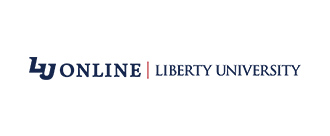Are you interested in a career that combines counseling skills, knowledge of psychological approaches, and a desire to help people? If so, consider the Bachelor of Science in Psychology with a concentration in Life Coaching program at Liberty University. Read on to find out more about this online bachelor's degree program.
<h2 id="section---FrequentlyAskedQuestions">Frequently Asked Questions</h2>
<h3 id="section---WhatKindOfProgramIsIt">What Kind of Program Is It?</h3>
<p>Liberty University's Bachelor of Science in Psychology with a concentration in Life Coaching is designed to help you understand psychological theories and concepts while focusing on core coaching practices and mentoring skills. All classes in the program are taken online. In the life coaching cognate, you will have the opportunity to study coaching models, counseling communication and relationship-building methods, Christian perspectives in counseling, and advanced coaching strategies. You will also have the chance to explore coaching methods in areas the wellness, marriage, finances, project management, and executive leadership. Other course topics intended to be examined include human development, personality theories, research methodology, statistics, and psychotherapy techniques. The program is designed to include a 125-hour supervised internship in a community clinic.
</p>
<h3 id="section---WhatAreThePrerequisites">What Are the Prerequisites?</h3>
<p>If you are interested in applying to Liberty University's Bachelor of Science in Psychology with a concentration in Life Coaching program, you must have already earned a high school diploma or GED. In addition, you might have a background in psychology and possess strong analytical, problem-solving, and organizational skills.
</p>
<h3 id="section---WhatAreTheCourseRequirements">What Are the Course Requirements?</h3>
<p>Liberty University's Bachelor of Science in Psychology with a concentration in Life Coaching program requires the completion of 120 credits. The curriculum includes 42 credits in general education coursework, 39 credits in the major area of study, and 39 hours in electives. The major area of study consists of 24 credits in core courses and 15 credits in a life coaching cognate.
</p>
<p><u>Courses for a Bachelor of Science in Psychology with a concentration in Life Coaching</u>
</p>
<p />
<table border="1"><tr><th>Course Number</th><th>Course Title</th></tr>
<tr><td><b>Foundational Studies</b></td><td /></tr>
<tr><td>ENGL 101</td><td> Composition and Rhetoric</td></tr>
<tr><td>ENGL 102</td><td> Composition and Literature</td></tr>
<tr><td>Communications Elective</td><td> Select One</td></tr>
<tr><td>Math Elective</td><td> MATH 115 or higher</td></tr>
<tr><td>APOL 104</td><td> Contemporary Worldviews</td></tr>
<tr><td>INFT 101</td><td> Instructional Tech. for Online Learning</td></tr>
<tr><td><b>Investigative Studies</b></td><td /></tr>
<tr><td>Natural Science Elective</td><td> Select One</td></tr>
<tr><td>History Elective</td><td> Select One</td></tr>
<tr><td>PSYC 101</td><td> General Psychology</td></tr>
<tr><td>General Education Elective</td><td> Select One</td></tr>
<tr><td>Humanities Elective</td><td> Select One</td></tr>
<tr><td>PHIL 201</td><td> Philosophy and Contemporary Ideas</td></tr>
<tr><td>BIBL 104</td><td> Survey of Biblical Literature</td></tr>
<tr><td>THEO 104</td><td> Introduction to Christian Thought</td></tr>
<tr><td><b>Psychology Core Courses</b></td><td /></tr>
<tr><td>PSYC 210</td><td> Developmental Psychology</td></tr>
<tr><td>PSYC 255</td><td> Introduction to Research</td></tr>
<tr><td>PSYC 341</td><td> Psychology of Personality</td></tr>
<tr><td>PSYC 354</td><td> Statistics for the Social Sciences</td></tr>
<tr><td>PSYC 355</td><td> Statistics for Psychology</td></tr>
<tr><td>PSYC 371</td><td> Theories in Counseling and Psychotherapy</td></tr>
<tr><td>PSYC 430</td><td> Abnormal Psychology</td></tr>
<tr><td>PSYC 499</td><td> Internship</td></tr>
<tr><td><b>Life Coaching Cognate</b></td><td /></tr>
<tr><td>LIFC 201</td><td> Introduction to Life Coaching</td></tr>
<tr><td>LIFC 202</td><td> Advanced Skills in Life Coaching</td></tr>
<tr><td>Select three of the following:</td><td /></tr>
<tr><td>LIFC 301</td><td> Health and Wellness Coaching</td></tr>
<tr><td>LIFC 302</td><td> Marriage Coaching</td></tr>
<tr><td>LIFC 303</td><td> Financial Coaching</td></tr>
<tr><td>LIFC 304</td><td> Leadership Coaching</td></tr>
</table><h3 id="section---WhatCouldIDoAfterIGraduate">What Could I Do After I Graduate?</h3>
<h4 id="section---CareerOpportunities">Career Opportunities</h4>
<p>After earning the Bachelor of Science in Psychology with a concentration in Life Coaching, you could seek employment helping people through problems and decision-making processes in areas of marriage, health, or career development. You might seek work in mental health clinics, community centers, employment agencies, family crisis centers, government offices, fitness clubs, or consulting firms.
</p>
<p>Positions you could pursue include:
</p>
<ul><li>Life Coach
</li><li>Job Coach
</li><li>Health Coach
</li><li>Financial Advisor
</li><li>Behavioral Coach
</li></ul><h4 id="section---AdvancedDegrees">Advanced Degrees</h4>
<p>As a graduate of Liberty University's Bachelor of Science in Psychology with a concentration in Life Coaching program, you could continue your studies in a master's degree program, which would introduce you to further theories and practices in psychology and counseling. In addition, completion of a master's degree program might allow you to seek supervisory or directorial positions in the field.
</p>
<p>Degrees include, but are limited to:
</p>
<ul><li>Master of Science in Psychology
</li><li>Master of Science in Counseling
</li><li>Master of Science in Clinical Psychology</li></ul>


.svg)


